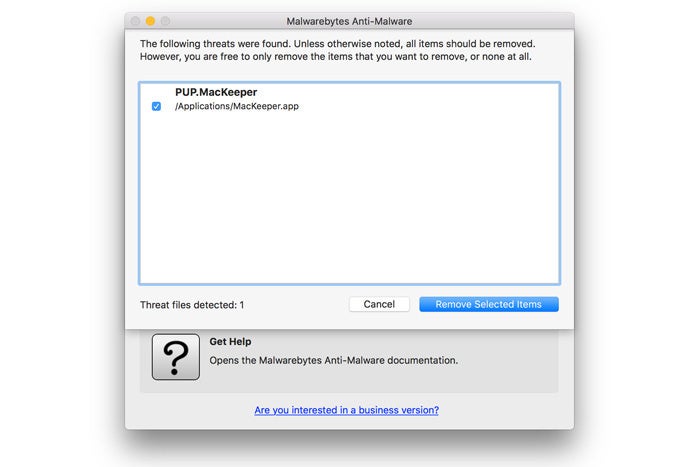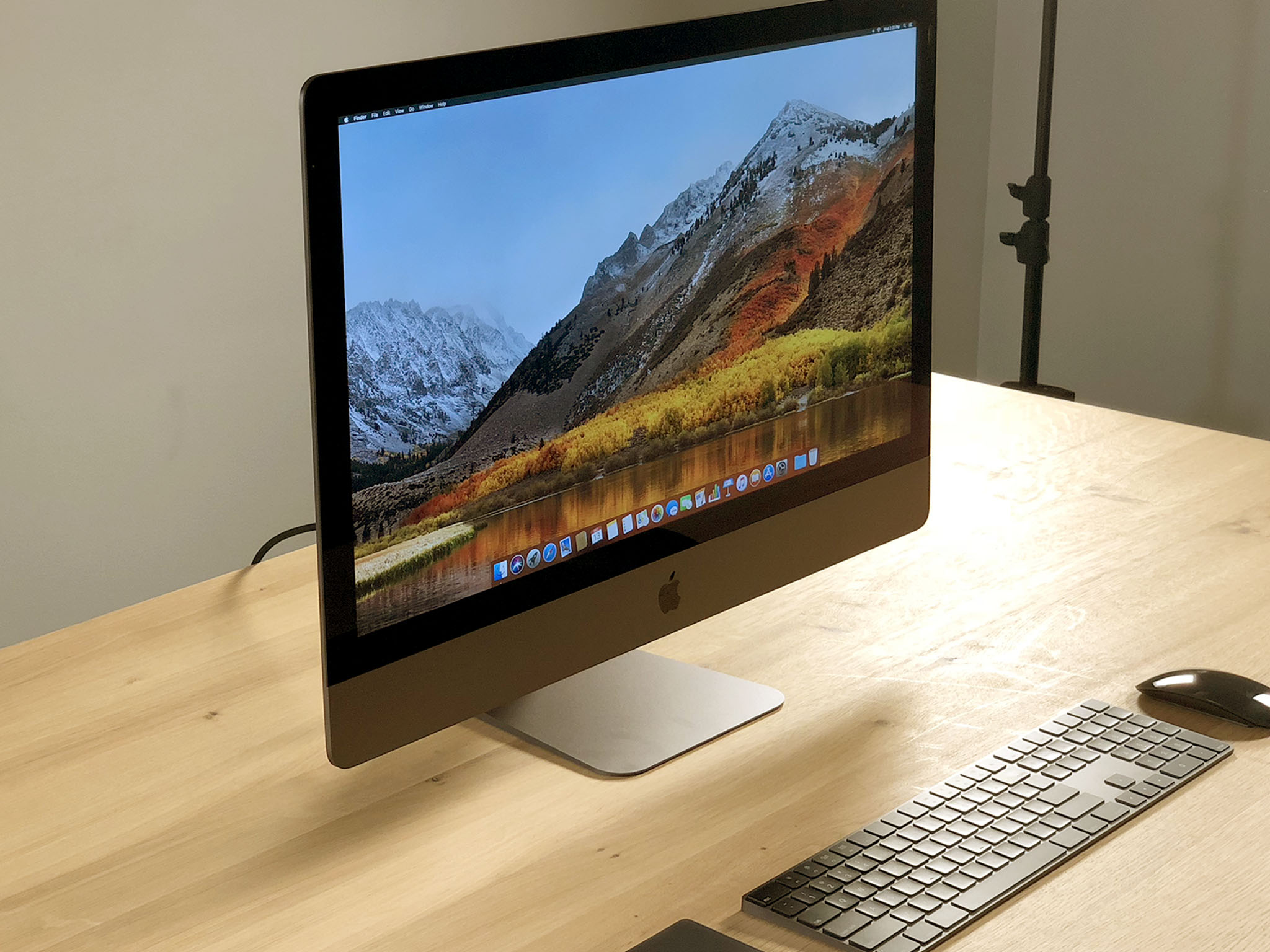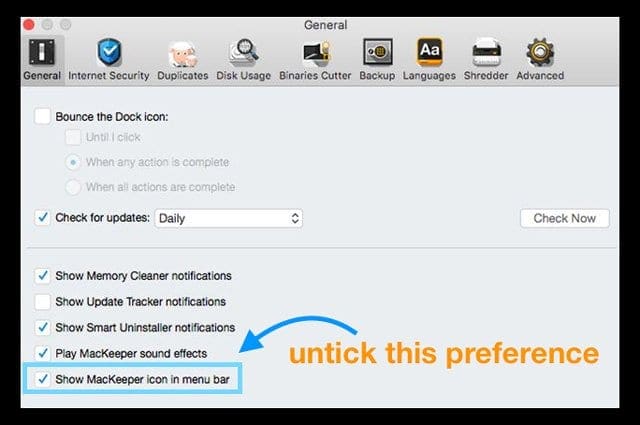
But some users claim that it slows down their Mac, and many people who accidentally downloaded and installed it now want to remove it. MacKeeper's Way. According to MacKeeper's website, the steps are simple: quit the app and drag it to the trash. MacKeeper is a multifunctional Mac protecting software. It provides a multi-layer protection to your Mac OS from all types of unwanted malicious threats.
Junkware is any kind of unwanted software capable of clogging up your system and slowing down your device.
Should I Download Mackeeper
The term describes any applications or programs pre-installed onto your computer or phone without your consent. You may have also unwittingly downloaded them yourself. Because they tend to take up space in your device, they can be a bit troublesome, but that’s often just the beginning of your problems.
Well, it’s time to take out the “trash”. Let us help you do some spring cleaning, but first, let’s learn more about junkware and what it can do to your device.
What are the different types of junkware?
What makes a software junkware is subjective. If a person had no prior knowledge of the installation of a program, then it can be considered junkware. (Most of the time, users may never even know if they have junkware on their computer.)
However, if a person starts regularly using software and finds it useful, then it can no longer be called “junk”.
Junkware can be categorized according to their level of threat and the way it was installed onto a device:
- Pre-installed
Usually, this type of junkware carries a low threat level. It can take up space, slow down your device but that’s about it. - Downloaded
Junkware packaged with other types of malware you’ve accidentally downloaded often poses the real threat. Cybercriminals intentionally load malware among other seemingly harmless apps. Their purpose is to hide the one app capable of really doing some damage to your device. This can include spying on your activities or collecting personal data.
Is junkware a PUP?
PUP may sound cute, but unlike man’s best friend, PUP stands for Potentially Unwanted Programs.

Though some IT specialists often use the terms ‘junkware’ and ‘PUP’ interchangeably, there are subtle differences. The main difference is the level of threat to your device. While some PUPs can be dangerous, most junkware is not.
Is junkware malware?
The majority of junkware is not considered malware. Malicious software has a hidden agenda such as tracking your online activities and accessing your private information.
Junkware is simply pre-installed or accidentally installed on your device but it doesn’t have malicious intent. The most damage it can do is bloat your system and take up space in your device’s internal memory or hard drive.
How do you get junkware?
Here are the most common ways to get junkware on your device.
- Pre-installed on your device
Laptop manufacturers get paid to install junkware on your device. While most users may blame their operating system for the extra, unwanted software, it’s actually the laptop makers at fault. - Bundled with other apps or software
When you download a free app or software, what you’re not told is how you’re paying for this another way. The app or software may be bundled with other programs able to install themselves on your computer without your knowledge. - Advertised as fake updates
This happens when you need to download the latest version of a software you regularly use. If you accidentally download the upgrade from a dodgy website, chances are, your download will come packaged with other apps potentially junk or malicious.
How do I know if I have junkware?

Junkware may not be easy to spot but here are some signs your device needs to throw out some “trash”:
- Your computer takes longer to start
- Junkware reduces your device's internal memory so you often run out of space to add new programs
- Your computer seems cluttered and there are a lot of programs you don’t regularly use
- You see a new toolbar on your browser which keeps reminding you to upgrade your free trial of unknown programs
What are the effects of junkware on my device?
Most of the time, junkware doesn’t really do any major damage but it can slow down your device.
In phones, junkware also prevents you from downloading apps you actually want to use. Sadly, it’s difficult to manually remove junkware but it’s not completely impossible.
What are the best junkware removal tools?
The best junkware removal tools are cybersecurity products able to keep an eye on your devices even when you’re not.
Websites advertising free junkware removal tools usually come with strings attached. Legitimate, trusted cybersecurity software may not be free, but you certainly get your money’s worth. Download rangemax(tm) next wireless adapter wn311b driver.
Don’t forget, it’s more expensive to recover files or repair your device when it’s compromised by malware or viruses than avoiding it in the first place by paying for the right protection.
Are junkware removal tools safe?

Before using a junkware removal tool, make sure it’s safe by doing your own research about the company or website offering it.
Ask yourself the following:
- Is it recognized by tech experts and the cybersecurity community?
- Are the product reviews good? Read expert columns on online publications and user testimonials on review websites.
- Is the company reputable? Do a quick check on their background and make sure they are not involved in any scandals.
- What’s in the fine print? Make sure to read the terms and conditions when downloading the removal tool to ensure you’re not downloading extra apps or more junkware to your device.

How to use junkware removal tools
Each junkware removal tool has a different interface and user experience. The usual steps to remove junkware include:
Step 1
Scan the device for viruses and malware. Most cybersecurity scans inform you of programs you rarely use. This allows you to decide whether it’s junkware or not.
Step 2
Once detected, remove the junkware manually or by using your cybersecurity software. Manually removing it can be tricky at times and you may end up removing apps you actually need. If you are uncertain, ask an IT expert for help.
Step 3
Activate your cybersecurity software to warn you about potential threats when downloading software online. For IT security products like Clario, this function is automated, which means it’s activated 24/7.
How to prevent getting junkware
If you want to avoid junkware invading your devices, here are a few pointers:
- Only buy your devices (laptops, desktops, phones) from trusted stores. Sometimes, store attendants may ask you if you want some pre-installed programs. Always remember you have the right to politely decline them.
- Be careful where you download or upgrade your software. These free downloadable items are usually bundled with malware and junkware which are potentially harmful to your device.
- Always update your operating system. While junkware is usually harmless, you never know what threats they can bring. The most updated version of your operating system ensures your device is more protected.
- Educate yourself about malware, the latest viruses and other threats. Being up-to-date with cybersecurity news is our best defense against criminals who relentlessly launch new viruses.
- Get a cybersecurity software to protect your device 24/7 and proactively give you advice on how to better protect yourself. Don’t settle for just an antivirus. Software like Clario offers a more holistic solution by personalizing your security preferences including the detection and removal of junkware.
Accidentally Downloaded Mackeeper Online
Read more:
We’d like to stay in touch.
We’ve got something special to share! Enter your contact details below to be among the first to find out about the exciting changes we’ve got in the works as well as to receive special promotions.
How To Download Mackeeper
Thanks for your subscription!
You’ll be the first to know about our updates. Please keep an eye on your mailbox.
